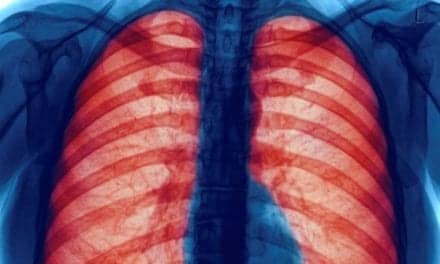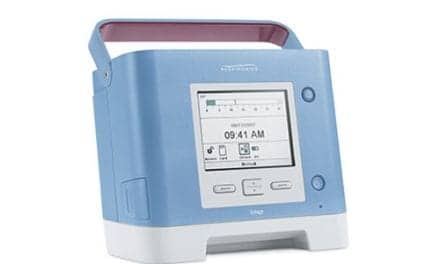Infants with RSV-positive bronchiolitis produce large numbers of aerosol particles containing RSV that remain infectious for a significant length of time, according to research.
Hemant Kulkarni, from the University of Leicester in the United Kingdom, and colleagues used viable impactor sampling to measure the amount of RSV contained in aerosolized particles produced by infants with bronchiolitis due to RSV. They determined the ability of RSV contained in these particles to infect healthy and COPD human ciliated respiratory epithelium.
The researchers found that infants with RSV-positive bronchiolitis nursed in a ward setting or ventilated in intensive care produced large numbers of RSV-containing aerosol particles. These particles remained infectious and were able to infect both healthy and COPD human ciliated epithelium. Particles with aerodynamic diameters of less than 5 µm had a significant amount of RSV.
“Many of the aerosolized particles that contained RSV in the air surrounding infants with bronchiolitis were sufficiently small to remain airborne for a significant length of time and small enough to be inhaled and deposited throughout the respiratory tract,” the authors write. “It is likely that this leads to spread of infection to others, with dissemination of infection throughout the respiratory tract.”










